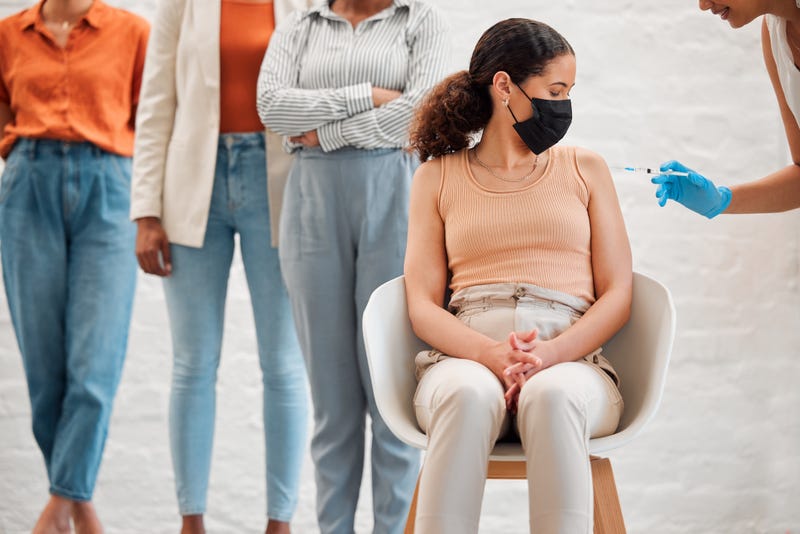
As we head into the fall season, health experts are already anticipating a possible winter COVID-19 surge, and the White House rolled out a new vaccination plan Thursday.
“We know that there is a potential for an increase in infections this fall, in part due to waning immunity from vaccines and prior infections,” said White House Coronavirus Response Coordinator Dr. Ashish Jha Tuesday. “But really because what we know is that as the weather gets colder, people spend more time indoors, and we know respiratory viruses like COVID-19 spread more easily.”
Jha’s comments echo World Health Organization Dr. Tedros Ghebreyesus’ message from late last month.
“With colder weather approaching in the northern hemisphere, it’s reasonable to expect an increase in hospitalizations and deaths in the coming months,” Ghebreyesus said. He urged people to get vaccinated and boosted in addition to taking other preventative measures such as wearing a mask in crowded indoor spaces.
“Vaccination coverage among the most at-risk people remains too low, especially in low-income countries,” Ghebreyesus noted. Even in some high-income countries, 30% of health workers and 20% of older people remain unvaccinated, he said.
In the U.S., “the seven-day average daily deaths are still too high, about 375 per day – well above the around 200 deaths a day we saw earlier this spring and, in my mind, far too high for a vaccine-preventable disease,” said Centers for Disease Control and Prevention Director Dr. Rochelle Walensky this week.
As of Wednesday, CDC data showed that more than 79% of the U.S. population had at least one dose of a COVID-19 vaccine, close to 67% were fully vaccinated and nearly 49% had received their first booster dose.
New U.S. vaccine rollout plans announced Thursday centered around new vaccines from Pfizer BioNTech and Moderna formulated to target the dominant omicron variant of COVID-19.
“We have to remember we haven’t seen a vaccine – a new vaccine since December 2020,” said White House Press Secretary Karine Jean-Pierre.
According to Jha, the U.S. is “the first nation with new vaccines that match the version of the Omicron variant that is currently dominant – dominant both here in the U.S. and around the world.”
He said the new vaccines will be provided for free, just as previous vaccines and boosters have been in the U.S. Jha also said that current data indicates that “we are moving to a point where a single annual COVID shot should provide a high degree of protection against serious illness all year.”
Dr. Anthony Fauci, director of the National Institute of Allergy and Infectious Diseases and the Chief Medical Advisor to the President, said the COVID-19 vaccination cadence is expected to be similar to the annual flu vaccine schedule.
This fall, people are recommended to get their latest COVID-19 vaccine dose along with their flu shot. Jha said it is safe to get both at the same time.
CDC data posted Thursday showed that key metrics for COVID-19 (cases, deaths and hospitalizations) were trending down). While things are looking positive, Jha said “curveballs” are possible in the future.
“The pandemic isn’t over,” he said. “And we will remain vigilant, and of course, we continue to look for and prepare for unforeseen twists and turns.”
Fauci added that some vulnerable groups may need to get vaccines more often than others.
“So, today, we’re calling on all Americans: roll up your sleeve to get your COVID-19 vaccine shot,” Jha said. “If you don’t think you need it because you are healthy, do it for your grandmother, do it for your vulnerable uncle or for your friend.”
“I certainly will do so,” said Fauci.
U.S. Department of Health and Human Services Director Xavier Becerra said that doses of the new vaccines began arriving last Friday. As of this week, more than 90% of Americans should be within five miles of the updated vaccines.
He said that as the nation heads towards the Thanksgiving holiday his department will continue to “emphasize the importance of getting an updated shot.”
“If you’re 12 or older and it’s been at least two months since you last got a shot, you should get these new updated vaccines right away,” said Pierre this week. “That’s the doctor’s advice.”


